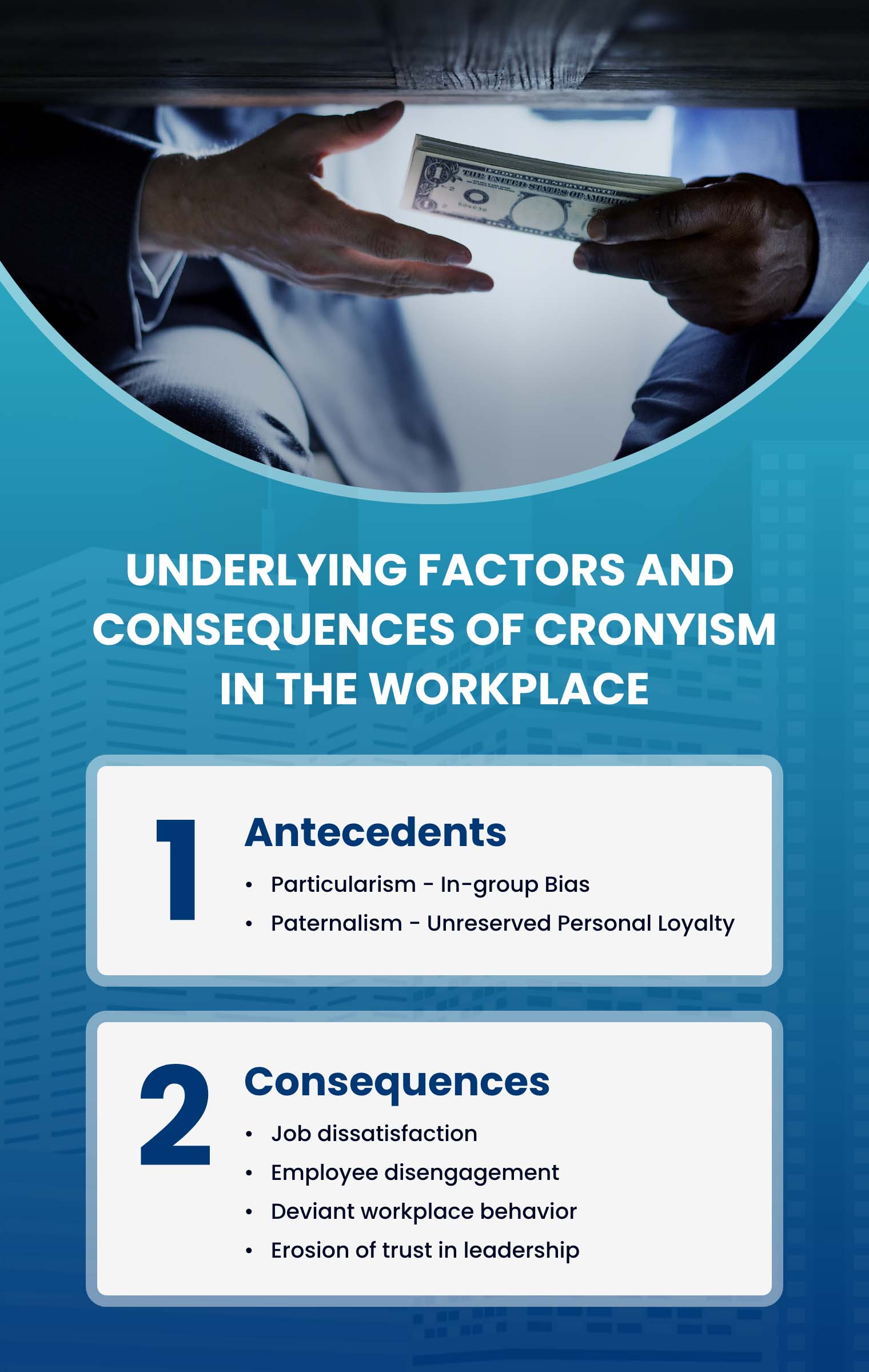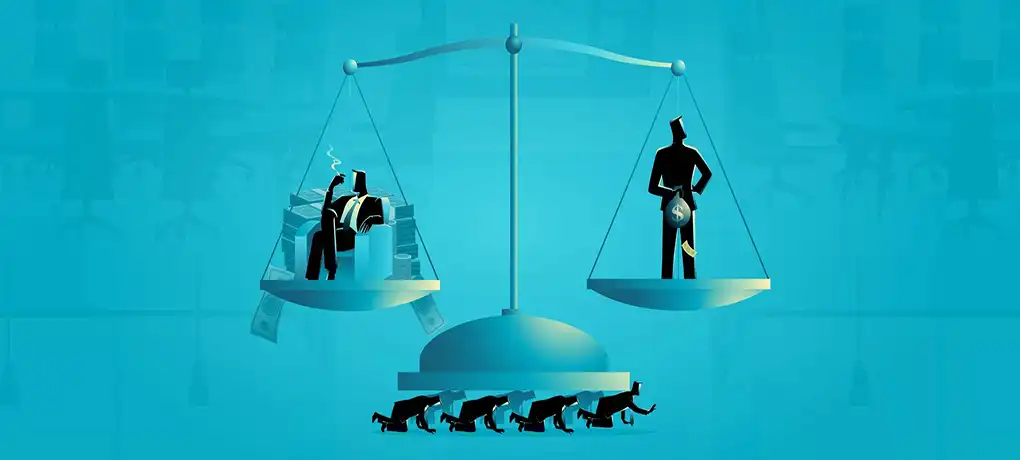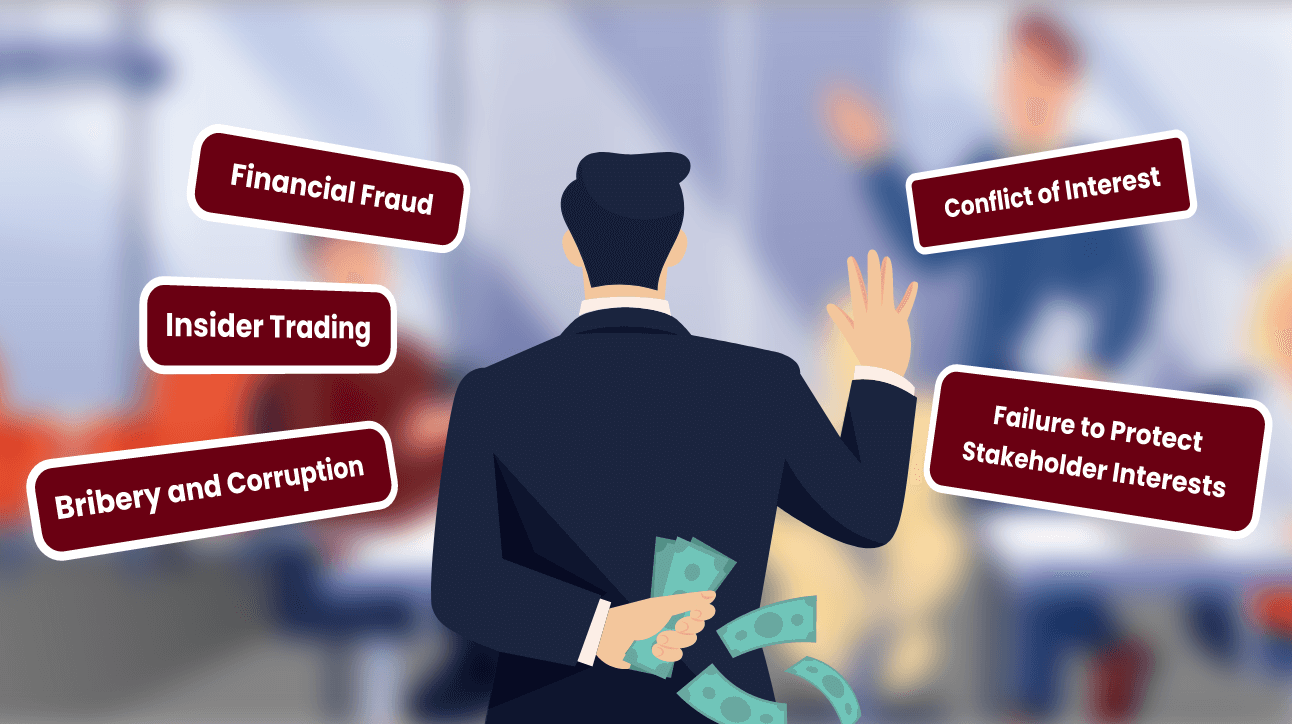We’ve all heard of nepotism, aka the act of favoring family members in the workplace. But what about cronyism? It’s the ‘insidious’ cousin that thrives within the organization itself. Cryonism is not about blood ties, but about the web of personal connections that trumps qualifications and merits.
In this article, we will peel back the layers of cronyism, from its damaging effects to ways to prevent it, and some cronyism examples for better understanding.
What does cronyism mean?
Cronyism refers to the act of favoring coworkers, acquaintances, or associates based on personal connections instead of actual performance standards. This organizational practice entails providing undue benefits, such as promotions and appointments, lighter workloads, and other favorable work conditions.
Cronyism often leads to feelings of organizational cynicism, deviance, and counterproductive work behavior among those who aren’t part of the favored group.
What are the types of cronyism?
Cronyism takes place in two ways: vertical cronyism (favored by superiors) and horizontal cronyism (favored by colleagues).
Vertical Cronyism
This type of cronyism occurs when leaders or superiors favor their subordinates, completely ignoring performance-related factors. At the vertical level, favored individuals can receive undue promotions or advancements beyond what’s merited and better projects or opportunities.
Horizontal Cronyism
This type of cronyism happens when colleagues or peers within the same level favor each other based on personal connections rather than merit. Horizontal cronyism involves forming alliances to influence decisions, covering for shortcomings, and sharing confidential information to gain an advantage.
Is cronyism illegal?
Cronyism itself is not illegal. However, it becomes a legal issue when it results in actions that violate existing laws and ethical principles. For instance, a procurement manager tasked with selecting a new software vendor might alter the evaluation criteria to favor their friend’s company. Ultimately, awarding them the contract despite other vendors submitting more competitive bids with superior features.
Such a scenario could be seen as violating procurement regulations and ethical business conduct. Basically, while cronyism in the workplace is not illegal, it is still considered unethical.
How is cronyism different from nepotism and favoritism?
Cronyism and nepotism both involve giving undue benefits to individuals not based on performance or ability. The difference is that cronyism meaning involves favoring employees based on friendships, while nepotism is all about blood relationships. Nepotism is the misuse of power and authority in order to provide privileges to family members or relatives.
Favoritism, on the other hand, can be based on a variety of factors (e.g. personal preferences, loyalty, in-group bias) beyond qualifications. Cronyism specifically pertains to favoring someone based on a close personal connection, which favoritism does not necessarily require to occur.
Underlying Factors and Consequences of Cronyism in the Workplace

Antecedents
While cronyism may occur in different organizations, cultural values—particularism and paternalism—can result in immediate antecedents of cronyism.
Particularism – In-group Bias
Particularism refers to the tendency to treat individuals based on the group they belong to. Hence, favoring those in the “special” group (in-group) over outsiders (out-group). Particularistic thinking prioritizes shared characteristics such as ethnicity, social background, religion, and even personal connections.
One example is when a hiring manager consistently picks out candidates from their alma mater, even if others have stronger qualifications. Favoring people from in-group creates a breeding ground for cronyism, wherein personal connection is a key factor in career advancement.
Paternalism – Unreserved Personal Loyalty
Paternalism is a management style closely associated with power distance, where the less powerful people expect and accept unequal distribution of power. From the perspective of those with more power, they might make decisions for the “greater good”, sometimes without the employees’ input, and expect loyalty and obedience in return.
For instance, a CEO makes unilateral decisions regarding employee perks without consulting them and then expects gratitude in return. In a paternalistic environment, employees might try to curry favor with their superiors to gain perks. The superior, in turn, rewards those who show unreserved loyalty and devotion, even if qualifications are lacking. This dynamic fosters cronyism, in which loyalty becomes more important than merit.
Consequences
There’s no denying how cronyism can have some detrimental impacts on any organization. This is especially true for employees who can experience a range of negative consequences as a result of such an unfair system. Some of the consequences are:
Job dissatisfaction
In the presence of cronyism, the outgroup members (those without connections) can experience lower job satisfaction. This is often caused by a perceived lack of fairness in benefits. In-group members get faster promotions, more interesting assignments, and higher pay increases compared to the outgroup. Such a situation creates a sense of injustice for outgroups, leaving them feeling undervalued.
Employee disengagement
When employees feel they’re being passed over, it can quickly translate into disengagement. Disengaged employees are less motivated and contribute minimally. They may also show up physically but lack the emotional investment at work. Feelings of diminished sense of self-worth and having limited opportunities can lead to a decline in initiative.
Deviant workplace behavior
Cronyism can incentivize negative behaviors. Outgroup employees who are unfairly passed over for promotions might resort to behaviors like:
- Sabotage — Intentionally hindering others’ work, particularly ones who benefit from cronyism in the workplace.
- Absenteeism — Having a “don’t care” attitude towards coming to work on time.
- Theft — Stealing company resources or confidential information might happen.
- Spreading negativity — Creating a toxic work environment through gossip towards employees who benefit from cronyism.
Erosion of trust in leadership
When outgroup members feel being passed over, it erodes trust in leadership — which also fosters cynicism within the organization. Leaders who are seen as being biased can put their credibility at risk. The lack of transparency and accountability in decision-making creates a sense of powerlessness among employees. Also, undermines their trust in leadership.
Ways to Prevent and Address Cronyism in the Workplace

Tolerating cronyism can cripple an organization’s productivity and morale. To create a fair and thriving work environment, it is crucial to implement the right strategies to prevent or end cronyism. Here are five key actions to take:
1. Maintain a culture of meritocracy
Hiring, promoting, and rewarding employees should be based on skills, experience, and performance. Never about personal connections. Fostering a culture of meritocracy means establishing clear criteria for each role.
Organizations can then conduct objective evaluations based on those criteria. One way to do this is by using standardized testing for specific skills or implementing a 360-degree performance review process to gather feedback from employees.
2. Shine a light on transparency
Having unclear processes in decision-making can have cronyism thriving in the shadows. To break its hold, fostering transparency within the organization is a good solution. Be upright in disclosing promotion criteria and career development opportunities.
Additionally, encourage internal job postings and open application processes for all positions. For better transparency, it’s best to regularly communicate details of hiring decisions and promotions, which led to the selections.
3. Take incidents of unfairness seriously
Silence is cronyism’s best friend. Organizations can prevent this detrimental practice by enforcing policies encouraging employees to report suspected cronyism. Also, do so with fear of retaliation.
A whistleblower policy, for instance, should offer multiple reporting channels for employees. These may include an anonymous option to report and also guarantee confidential investigations into all claims. To maintain impartiality, it is ideal to consider forming a reliable, independent review board to investigate the allegations.
4. Embrace confidential mediation
Another strategy to take is offering confidential mediation when addressing confirmed cronyism in the workplace. This enables the involved parties to discuss the issue openly but with meritocratic principles and a clear focus on restoring fairness. The mediator should guide the discussion appropriately toward solutions that promote a culture of respect for performance and qualifications.
5. Empower your employees
Cronyism prioritizes loyalty over competence. Battle this out by fostering a culture of continuous learning and development. Invest in providing employees with opportunities for skill-building and professional growth. Organizations can also encourage mentorship programs that pair experienced employees with high-potential individuals based on compatibility, not personal ties.
Maintain a Fair Organizational Culture with Convene

A credible organization relies on a foundation of fairness. Cultivating opaque decision-making processes and limited access to information can create breeding grounds for cronyism. Board portals like Convene, however, can become powerful tools in the fight for fairness.
Convene, a leading board portal solution, goes beyond meeting management as it actively encourages a culture of fairness with its suite of features. The platform offers transparent, open communication through secure document sharing and real-time collaboration tools — giving equal access to all authorized parties. Users can also take advantage of detailed audit trails to track document access and edits.
For standardized processes, Convene streamlines board workflows with customizable agendas and templates. With this, organizations can have consistent evaluation criteria and reduce the risks of subjective decisions based on personal ties.
Learn more about Convene’s features and how the platform can help maintain fairness within organizations. Request a demo today!
Jielynne is a Content Marketing Writer at Convene. With over six years of professional writing experience, she has worked with several SEO and digital marketing agencies, both local and international. She strives in crafting clear marketing copies and creative content for various platforms of Convene, such as the website and social media. Jielynne displays a decided lack of knowledge about football and calculus, but proudly aces in literary arts and corporate governance.


![How to Create a Board Skill Matrix + Template [Free Download]](https://cdn.azeusconvene.com/wp-content/uploads/2024Q3_Jul_Board-of-Directors-Skills-Matrix-Whitepaper-C-Dark.png)








